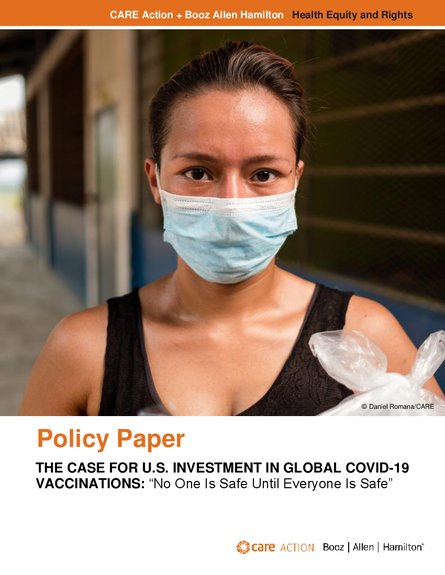
Since the WHO declared COVID-19 a global pandemic on March 11, 2020, the total damage to the United States economy has been significant —at its height nearly $1 trillion in United States GDP contraction, 23 million jobs lost, and significant business disruptions and closures.
While the United States has accelerated its vaccination efforts, the threat of COVID variants jeopardize these gains,which makes achieving global herd immunity as quickly as possible a national priority. International efforts to acquire vaccines for low-to-medium-income countries are lagging with the World Health Organization’s coordinated Access to COVID-19 Tools Accelerator (ACT-A) estimating a $19 billion funding gap. Acquiring vaccines is not sufficient to counter risks of COVID variants —transporting, delivering, and administering vaccines are key to preventing new ‘hot beds’ for variants and halting the spread of current strains. Using a GDP insurance model and the OECD-DAC recommended calculation, the U.S. fair share of that cost is between $15-26 billion.
No one is safe until everyone is safe. Without an initial United States commitment of $15-$26 billion over the next 2-3 years (2021-2023) to support global vaccine distribution and ongoing support in the outyears, the United States investment in vaccines and efforts to reopen the economy could be jeopardized.